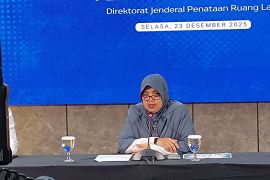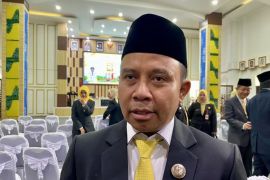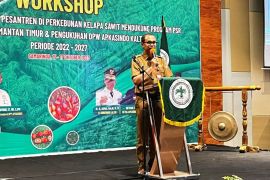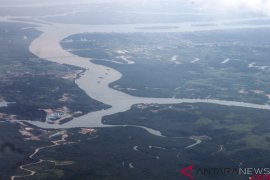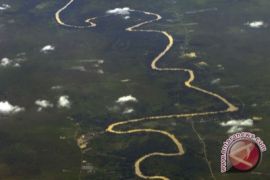Muhammad Nur, the chief representative of the Central Bank for East Kalimantan said the commodity price hike in international market has not come to fundamentals and there was still potential inflationary pressure in the remaining months of the year.
The economy of East Kalimantan, one of the countrys largest and richest provinces in natural resources, has been badly hit by the global slump over the past several years.
"The East Kalimantan economy contracted 1.21 percent in 2015. In 2016, there was improvement but the economy still declined by 0.38 percent. Therefore, this year we are still facing a number of risks," Nur said here on Saturday.
Coal exports to China and India, the largest markets for Indonesian coal, are on the decline. China still reduces its coal consumption and India, which has been a major importer of coal from East Kalimantan, has succeeded in increasing its domestic production.
Meanwhile, heavier inflationary pressure is feared after the abolition of subsidy on electricity for 900 VA customers and an increase in oil fuel price (BBM) with oil prices picking up in the world market, Nur pointed out.
However, there is still encouraging prospects for East Kalimantan, he said, noting coal exports from South Africa, one of the worlds largest coal suppliers, have been more concentrated to serving growing demand in Africa. East Kalimantan, therefore, would face less potential competitors in the Asian market.
Other opportunities to sustain East Kalimantans economic growth include growing investment by the private sector, he said, pointing to plan to expand the capacity of the Refinery Unit V of the state energy company PT Petamina in 2017 to be completed in 2019.
In addition, new opportunity is open with regulation of the Energy and Mineral Resources (ESDM) Minister No. 30/2016 on the take over of management of the oil and gas fields after the termination of contract of foreign contractors or operators such as in the case of the Mahakam Block. Pertamina will take over as the new operator of the giant oil and gas field of the Mahakam Block replacing Total Indonesie.
"Another opportunity is expected to come from 20 new palm oil processing factories to come on line in 2017 with a total processing capacity of 885 tons of fresh fruit bunches per hour. The new processing factories would bring the total processing capacity of the province by 21 percent," Nur said.
Meanwhile, East Kalimantan Governor Awang Faoruk has said that President Joko Widodo (Jokowi) had approved development of 16 strategic projects in the province.
The projects proposed by the governor are aimed at changing the economy of the province from too much dependence on oil and gas and coal exports, a senior regional official Ichwansyah said.
Among the 16 strategic projects include toll roads, railways , airports, seaports , industrial estates , oil refineries, dams and public works projects in frontier areas.
The impact of the global economic slowdown was bad on the mining, and export development resulting in contraction in East Kalimantan economic growth in 2015 and 2016.
Among the steps taken and to be taken after oil and gas and coal mining business is no longer shining include development of agro-industry, Ichwansyah said.
East Kalimantan already has large oil palm plantations and it hopes to expand plantations of rubber, cacao and coffee.
"Priority projects are 2 million hectares of oil palm plantations, the Marangkayu dam to irrigate 1,500 hectares of rice fields to be completed in 2019, and the Teritip dam to be operational in 2018,"Ichwansyah said.(*)
Editor: Heru Purwanto
Copyright © ANTARA 2017
